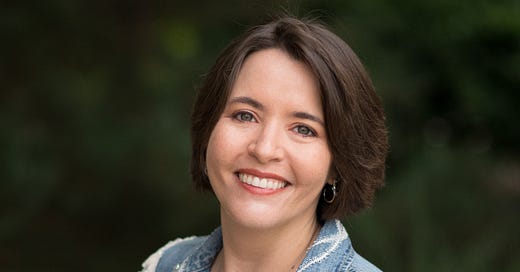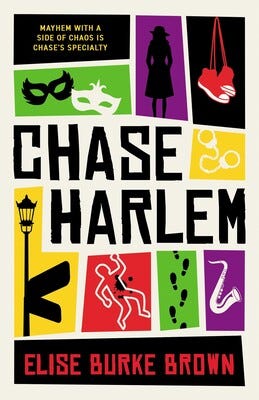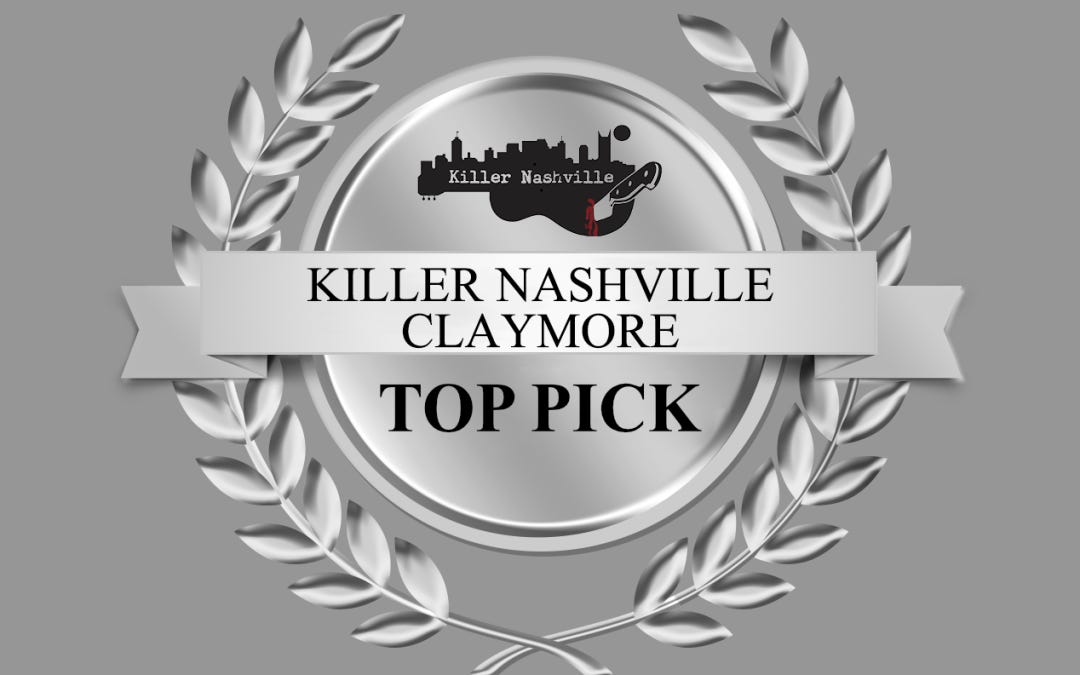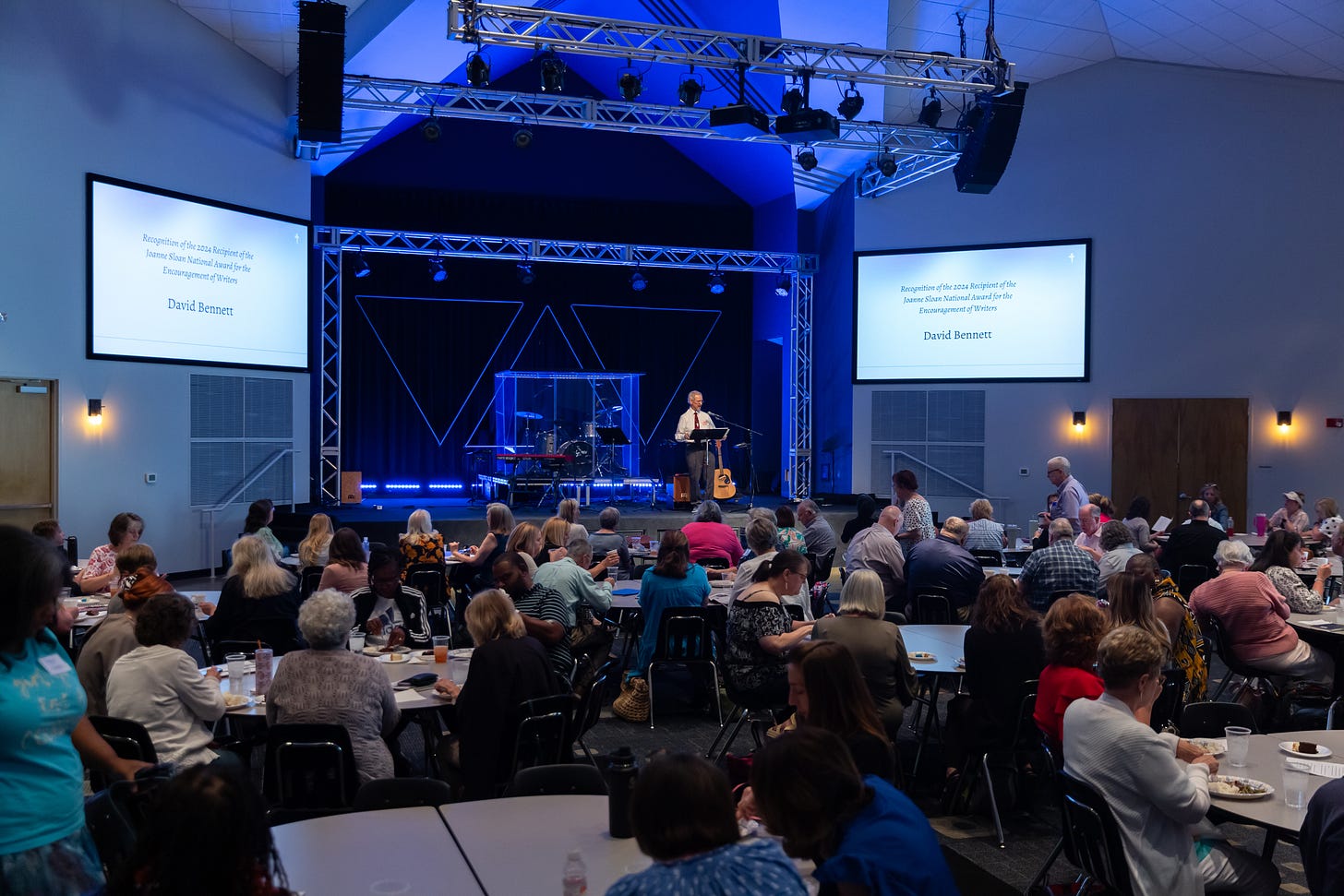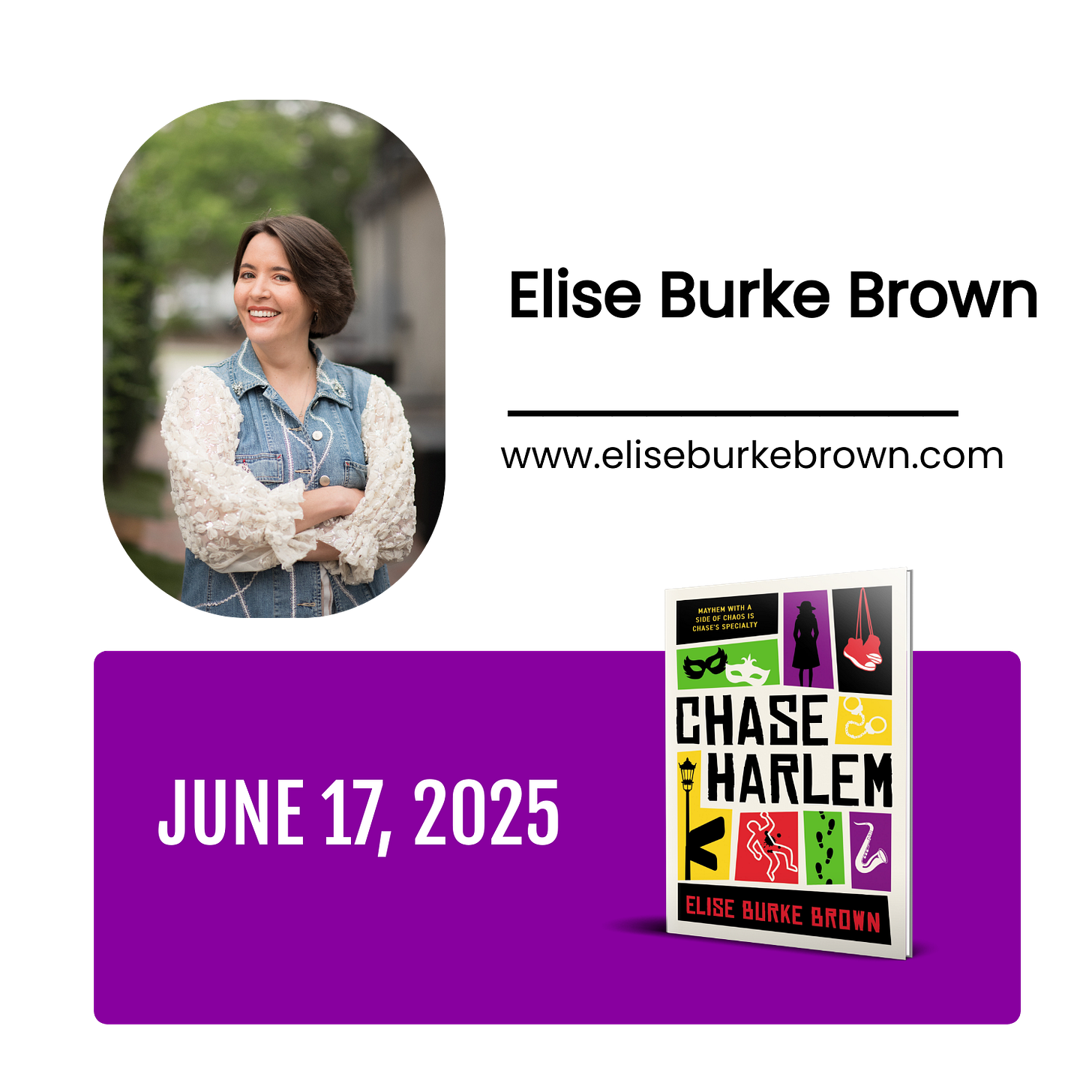Debut novelist Elise Burke Brown demystifies the publishing process
The mystery novel Chase Harlem, published by Rising Action and distributed by Simon & Schuster, will be released on June 17.
Every aspiring novelist dreams of the moment when she finally lands an agent—or when he hears the news that his book will be published.
Debut novelist Elise Burke Brown knows about those feelings and that dream. After a long process that involved numerous rejections, she’s looking forward to the publication of her debut novel Chase Harlem this next Summer with a major publisher.
The story of her publishing success is a fascinating glimpse into what the process looks like for novelists.
(Elise will be presenting a session on “How I Sold My First Novel” at the SCWC Virtual Fiction Workshop on Saturday, Jan. 18. Registration is still open for the workshop, and paid subscribers to “The Ready Writer” get 10% off.)
When did you first know you wanted to be a novelist? And do you have another "regular" job?
When I was in second grade, I started writing short stories. Shortly after that, I started writing plays for my youth group. I always knew I wanted to write novels, so I finished my first novel, a Young Adult Space Opera, in college. When I tried to pitch the novel, no one was buying Young Adult Space Operas. Having given it my best shot, I moved on to teaching English, but I couldn't leave writing behind and was asked to write plays for the high school. It wasn't until 2020 that I found the time to dust off my best detective manuscript and get to writing again. By 2021, I had an agent. By 2023, I lost my agent but gained a publisher.
In 2022, I switched from being a high school English and theatre teacher to being an advisor for the College of Engineering at the University of Alabama. I'm also an adjunct professor teaching Freshman Composition. The job has given me more time to write as I rarely need to take my work home with me. Since changing jobs, I've written three more books.
How long have you had an idea for this first book?
I actually wrote the first draft of Chase Harlem in college. It was awful. The mystery made little sense, there were at least thirteen unnecessary characters taking up space, and worst of all, it was not set in New Orleans. That's why it was the novel I shoved in the drawer and tried to forget about, but Chase's voice was so strong in my head, that I simply couldn't let that character disappear. After a trip to New Orleans, in which I encountered a man walking a ferret on the sidewalk, I knew what the story was missing. The published book has about five pages left over from the original manuscript, and only four of the original characters (Chase included) made it into the final draft.
Tell me a little bit about your book and its characters. And where did the inspiration come for it?
The blurb for the book describes it like this: “All Private Investigator Chase Harlem wants is a simple life--morning jogs in cemeteries, jazz that soothes the soul, and enough quirky cases to pay the bills without summoning her FBI past. But when a priest waltzes into her office with a divine mandate to crack a grisly double homicide involving an LSU quarterback and his actress girlfriend, Chase's plans for peace get thrown out like last week's gumbo. With her best friend, a 'maybe' boyfriend, and a teenage neighbor who's too curious for her own good, Chase dives headfirst into a case that reminds her far too much of her past.”
I actually come from a long line of detectives, including a grandfather who filled my childhood with true crime stories I learned not to repeat in daycare. Chase evolved from those stories, and she's far more like him than me.
The process of getting accepted by an agent and then getting a contract is a mystery to many writers. What was that process like for you?
In 2021, I began querying agents, and I signed with one after 100 rejections. That said, I signed somewhat quickly because I'd met the agent at the Virtual Florida Writers Conference, where I was able to pitch my book in-person. This is why I truly believe writer's conferences are the best way to get your foot in the door. In 2022, we started pitching Chase Harlem to publishers, and by 2023, that agent and I had parted ways because "nobody wanted" the book. A week after the split, I found out Chase was up for the Claymore Award with the Killer Nashville Conference. Long story short, I won. After giving a speech I don't remember, I returned to my table at the awards dinner, and a publisher said, "Send that to me. I don't care if you have an agent or not." I did. Two weeks later, I sold the book "nobody wanted" and its sequel to Rising Action Publishing.
After that, I started pitching my other manuscript to agents again. After 98 rejections, I got an offer. I then received two more offers. In the end, I signed with Rachel Beck of Liza Dawson and Associates. It's one of the biggest agencies out there right now, with books like Yellowface and Virgin River on its roster. Rachel will be submitting a manuscript to publishers for me by the end of the month.
What advice would you give to aspiring novelists trying to get their foot in the door?
Go to conferences! Seriously, find your writing people and work together. Form a good critique group that will encourage you to keep writing even when you think you've hit a wall. This is not an easy job, so forming a community is essential, whether you're doing traditional publishing or publishing independently.
If you're worried that other writers will "look down on you" at conferences, don't be. Writers are the most down-to-earth people I've met. We all have faced rejection time and time again no matter how many wins we have, and we want to see others succeed. So even if the last thing you wrote was a high school play (been there), put yourself out there so that you can get your work out there.
What are your next plans? Marketing this book? Working on another idea?
I'll be working with my distribution team, Simon and Schuster, to market my first book as best we can. I'll also start editing the sequel. I also hope to start writing a new novel while my agent pitches my latest mystery to publishers.
How do you hope to encourage SCWC members in your virtual workshop session?
I hope to encourage them to follow this dream. Publishing is hard, and if I'm honest, often discouraging. However, if you keep at it, you can become a published author.
Learn more about Elise’s new book Chase Harlem.

